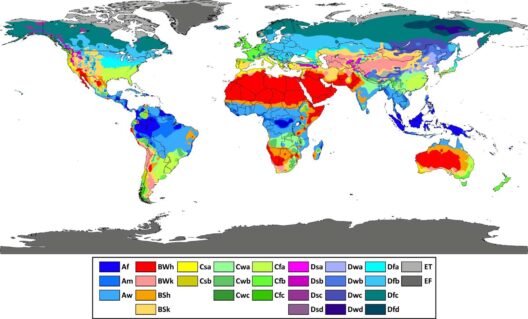In an era where climate change poses a significant threat to our ecological balance, conserving energy at home has become more crucial than ever. The way individuals utilize energy within their households directly impacts the environment, resource depletion, and long-term sustainability. Fortunately, adopting energy-efficient practices is feasible for every household, making it not just an environmental luxury but a fundamental responsibility.
Understanding the concept of energy conservation begins with an appreciation for the intrinsic relationship between energy consumption and its environmental ramifications. Many households operate under the misconception that small changes yield negligible effects. However, this mindset overlooks the compounded impact of collective efforts, wherein every kilowatt saved contributes to a larger societal benefit. In dissecting the myriad methods to conserve energy, we can categorize them into several actionable segments: electrical efficiency, heating and cooling strategies, water conservation, and mindful habits.
Electrical Efficiency
The most straightforward means of conserving energy is by optimizing electrical consumption. Start with replacing incandescent bulbs with compact fluorescent lamps (CFLs) or light-emitting diode (LED) bulbs. These alternatives not only consume considerably less energy but also possess longer lifespans, thus reducing both energy bills and waste. Moreover, consider installing motion sensors in less frequented areas, such as hallways and bathrooms. This technology activates lighting only when necessary, ensuring lights remain off in unoccupied spaces.
Another pivotal step involves utilizing energy-efficient appliances. When updating or purchasing new devices, look for those bearing the Energy Star label, as they meet stringent energy efficiency guidelines set by the U.S. Environmental Protection Agency. It’s imperative to remember that older appliances consume significantly more energy; therefore, an inventory of household devices is prudent. Unplugging machines when they are not in use, or using power strips to easily turn off multiple devices simultaneously, can also mitigate phantom energy consumption, which is the energy used by devices in standby mode.
Heating and Cooling Strategies
Temperature regulation can become an energy hog, accounting for nearly half of a household’s energy usage. Effective management of heating and cooling systems is essential in any energy conservation strategy. First and foremost, conducting a thorough inspection of insulation is critical. Properly insulated homes retain heat in the winter and cool air in the summer, reducing reliance on heating and cooling systems. Invest in high-quality insulation materials for attics, walls, and basements, as well as sealing any drafts around windows and doors with caulk or weather stripping.
Equally important is the temperature setting of thermostats. During summer, setting the thermostat a few degrees higher can yield significant savings. A programmable or smart thermostat provides further benefits by allowing users to regulate indoor temperatures according to lifestyle patterns. Set the thermostat to lower temperatures (around 68°F) in winter and higher (approximately 78°F) in summer to strike a balance between comfort and efficiency.
In addition, embracing passive solar heating techniques can enhance energy conservation. Opening curtains during daylight hours allows sunlight to warm your home naturally during the winter months, while closing them during summer can shade out excess heat. Planting deciduous trees strategically around a home can provide natural cooling in warmer months while allowing sunlight to penetrate during winter after the leaves fall.
Water Conservation
Water heating systems constitute a substantial portion of energy consumption, thus optimizing hot water usage presents another avenue for energy conservation. A simple yet effective measure is to lower the thermostat on your water heater to around 120°F. This not only conserves energy but also prevents scalding hazards. Consider investigating the possibility of installing low-flow showerheads and faucet aerators. These fixtures reduce water usage without sacrificing pressure, resulting in energy savings overhead in heating costs.
Furthermore, adopting water-saving practices such as timely leaky faucet repairs and mindful dishwashing can cumulatively lead to noticeable reductions in energy usage associated with water heating. During laundry, washing full loads and selecting cold-water cycles can minimize energy expenditures significantly.
Mindful Habits
The energy conservation journey extends beyond physical changes within the home to encompass mindful daily habits. Habitual behaviors, when aligned with energy-conscious practices, can affect overall consumption. For instance, taking shorter showers, turning off lights when leaving rooms, and using appliances during off-peak hours can instill an energy-efficient mindset.
Additionally, fostering an awareness of energy consumption among all household members promotes shared responsibility. Educate family members about how their actions affect energy expenditure; small actions compounded among numerous individuals can lead to significant outcomes. Create a family energy conservation pact, aiming for collective goals such as reducing household energy usage by a certain percentage.
Another approach lies in the potential for behavioral shifts towards less energy-intensive activities. Rediscovering outdoor activities—replacing treadmill workouts with outdoor runs, or sunlight-driven gardening—can diminish reliance on electrical devices. The integration of energy conservation principles extends beyond the household and can influence local communities, inspiring neighbor cooperation for environmental efforts.
Conclusion
The journey toward energy conservation at home is both a collective and individual endeavor. By adopting practical steps that range from increasing electrical efficiency to changing everyday habits, every household can significantly contribute to alleviating the pressures of climate change. The importance of fostering an energy-conscious mindset cannot be overstated. Each small action accumulates, leading to substantial progress in the quest for sustainability. By working diligently to reduce energy consumption, individuals not only enhance their immediate living environment but also become stewards of a healthier planet for future generations. In a world facing the urgent crises of climate change and ecological imbalance, every effort counts. Step by step, home by home, change is possible.







